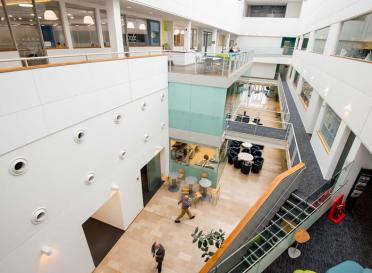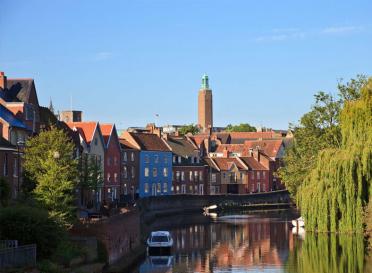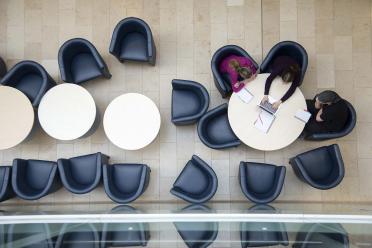
Life at Earlham Institute
We believe that our people are our greatest asset, and we want you to have the freedom to achieve your very best work here.
Are you a motivated undergraduate with a passion for engineering biology, microbiology, and plant science?
Would you like to be at the cutting edge of agricultural research, working on developing an easy-to-use solution for scientists and farmers to diagnose soil conditions in the face of climate change and the current need to reduce fertilizer and pesticide use?
We’re offering an exciting PhD opportunity at the Earlham Institute, in collaboration with the Earlham Biofoundry. This studentship is fully funded and aims to engineer sentinel bacteria allowing the sensing and recording of multiple molecules important for plant growth and characteristic of a healthy soil microbiome.
You’ll engineer in Pseudomonas a library of biosensors designed to detect markers of interest via high-throughput cloning and characterization methods, and use integrase-based DNA switches to record the detection of molecules in the DNA.
You will use amplicon sequencing and fluorescent outputs to read out the output of the detection. After optimization in controlled conditions, you will test the detection in the presence of crop synthetic microbial communities and the crop itself.
This project offers:
This technology has the potential to be used by agricultural stakeholders to assess soil health in fields. This is your chance to make a tangible impact on sustainable agriculture, gain invaluable interdisciplinary skills, and contribute to world-leading engineering biology.
This project is awarded with a 4-year fully funded joint John Innes Foundation and Earlham Institute PhD Studentship. Tuition fees are covered, and a stipend will be provided for each year of the studentship (2025/6 rate is £20,780.00). Research training support funding is available.


We believe that our people are our greatest asset, and we want you to have the freedom to achieve your very best work here.

Norwich is a city of culture, with its rich history of art and writing, as well as a city of science - hosting some of the leading centres for life science research in the world.

The behaviours and communication skills we expect from candidates.